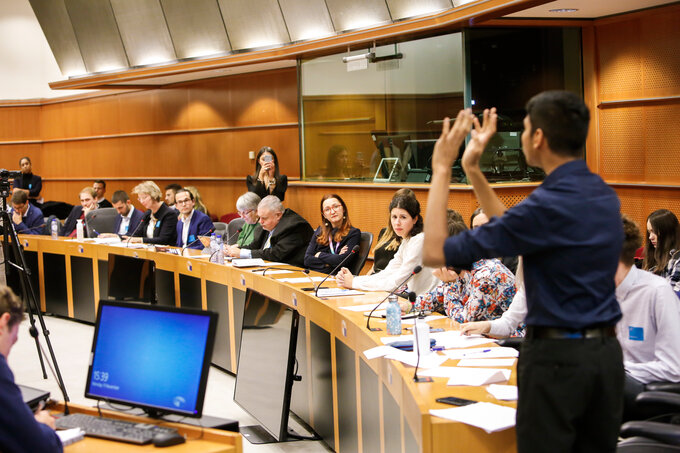Youth Participation
We empower young people to become active citizens who participate constructively and in an informed, critical way in society at all levels, advancing the dialogue between decision-makers and citizens.
Increasing their capacity for participation, inclusion and making them more resilient to anti-democratic tendencies developing in their community makes IDEA the first line of the fight against the threats to democracy.
Public discourse in contemporary societies is often limited, and participation in it is not widespread. Many young people say they are so tired of the conversational atmosphere based on conflict and populism that they are prepared to remain outside of the public discourse. More and more people also feel that their possibilities to affect society are insufficient.
Engaging in debate helps both young people and citizens, in general, to understand critically what their main problems are, to analyze the stakeholders, and to reflect on solutions. It serves as a tool for inclusion in public life and a device that inoculates young people against the threats to democratic culture taking root in their communities.
This mission focuses on these continuums of activities:
Providing young people with opportunities to engage and learn to participate in civic society.
It is important to provide pathways of engagement for young people in their daily lives but also in democratic life. The ultimate goal would be a meaningful civic, economic, social, cultural and political participation of young people from all backgrounds, including those with fewer opportunities.
Raising young people's awareness about European common values.
This includes learning about fundamental rights but also contributing to the European integration process, including the achievement of one or more of the EU Youth Goals.
Bringing together young people and decision makers at local, regional, national and transnational level and possibly contributing to the EU Youth Dialogue.
Developing young people's digital competences and media literacy
Key areas cover critical thinking and ability to assess and work with information. In addition, it is more than ever essential to increase young people's resilience to disinformation, fake news and propaganda.
